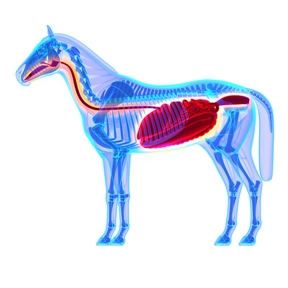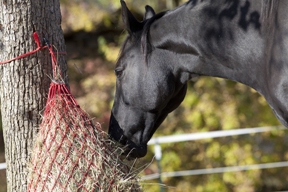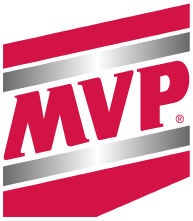If your horse isn’t feeling great, you want to help him feel better as fast as possible. But as a horse owner, it can be tough to know if your horse is having gastric health problems because he can’t tell you. One of the most common unseen causes of pain in horses is the occurrence of gastric ulcers, which can happen at any time.
Here are a few things to look for if you think your horse may be suffering from gastric upset.
Signs of Equine Gastric Upset

Although it can be tough to tell if your horse’s behavior is caused by stomach ulcers, there are a few easily identifiable signs if you know what to look for. If you’ve noticed your horse’s coat has lost its beautiful gloss, this is a definite indicator that something is wrong. Weight loss and changes in appetite are also signs of stomach problems. After all, it’s hard to eat when your stomach hurts. Your horse may have also shown a change in attitude, expressing irritability or resistance. He may also start to show signs of colic.
Also, if your horse has experienced a change in his performance during competition, such as refusing to work or enter the arena, this could be an indication that something is wrong.
What Causes Stomach Ulcers?
A horse’s stomach is actually quite different from the human stomach. In fact, a fraction of the horse’s stomach interior lacks the protective mucus and bicarbonate , which is the first line of protection against stomach acid in most mammals. Only ⅔ of a horse’s stomach possesses the dense layer of protective mucus, which means ⅓ of the stomach is exposed to the corrosive stomach acid.
A horse is designed to graze 24/7. Doing so keeps the stomach busy and prevents acid from reaching the upper ⅓ unprotected region of the stomach, where ulcers can form. However with the modern-day horse, many experience longer periods between meals thus allowing that acid to wreak havoc.
Is My Horse at Risk?
If your horse often goes long periods without eating and has limited access to hay or grazing pasture, these may be
indicators your horse is at risk. If you notice they are exhibiting any of the signs of stomach ulcers, it’s important to treat them right away.
Here are a few more indicators of risk:
● NSAID therapy such as Phenylbutazone (bute)
● High stress levels due to trailering, training, competition, or injury
● Ample grain meals
● Significant changes in routine
How Can I Help My Horse?
Work with your Vet.
It is important to always consult with your vet if you think something is wrong. Next, work with your vet to develop a treatment plan. Most plans will typically use Gastro-GardⓇ (omeprazole), which is an FDA-approved medicine that treats ulcers in horses.
You may also need to adjust your basic management to aid in the prevention of gastric upset such as providing free choice hay 24/7, plenty of water, feeding 1 oz of salt twice daily, and avoiding high intake of starchy concentrated grains.
Provide plenty of fresh water and consider adding a daily support supplement that provides probiotics to help restore microbial balance. This can be used in conjunction with treatments (Gastrogard/Ulcergard) to support healthy gut function.

